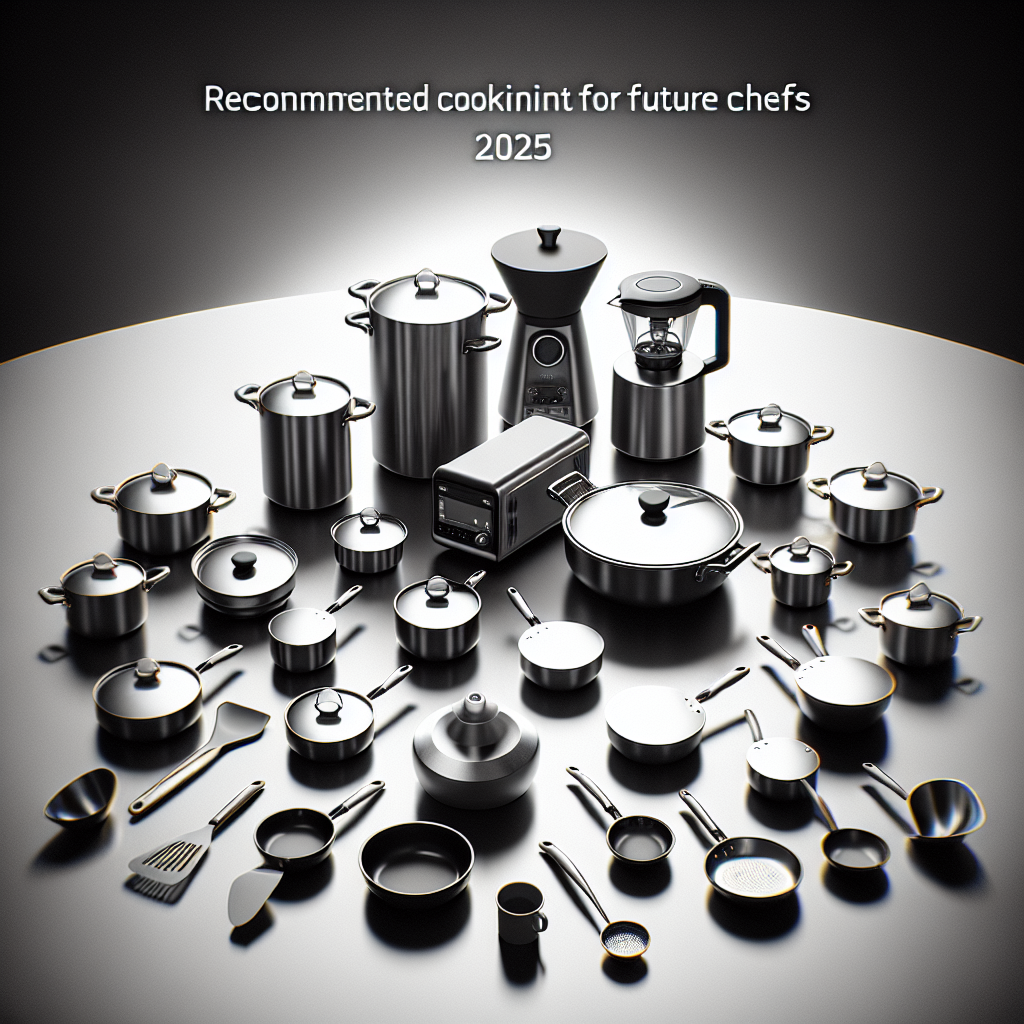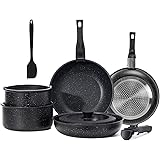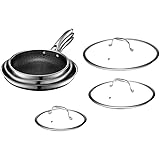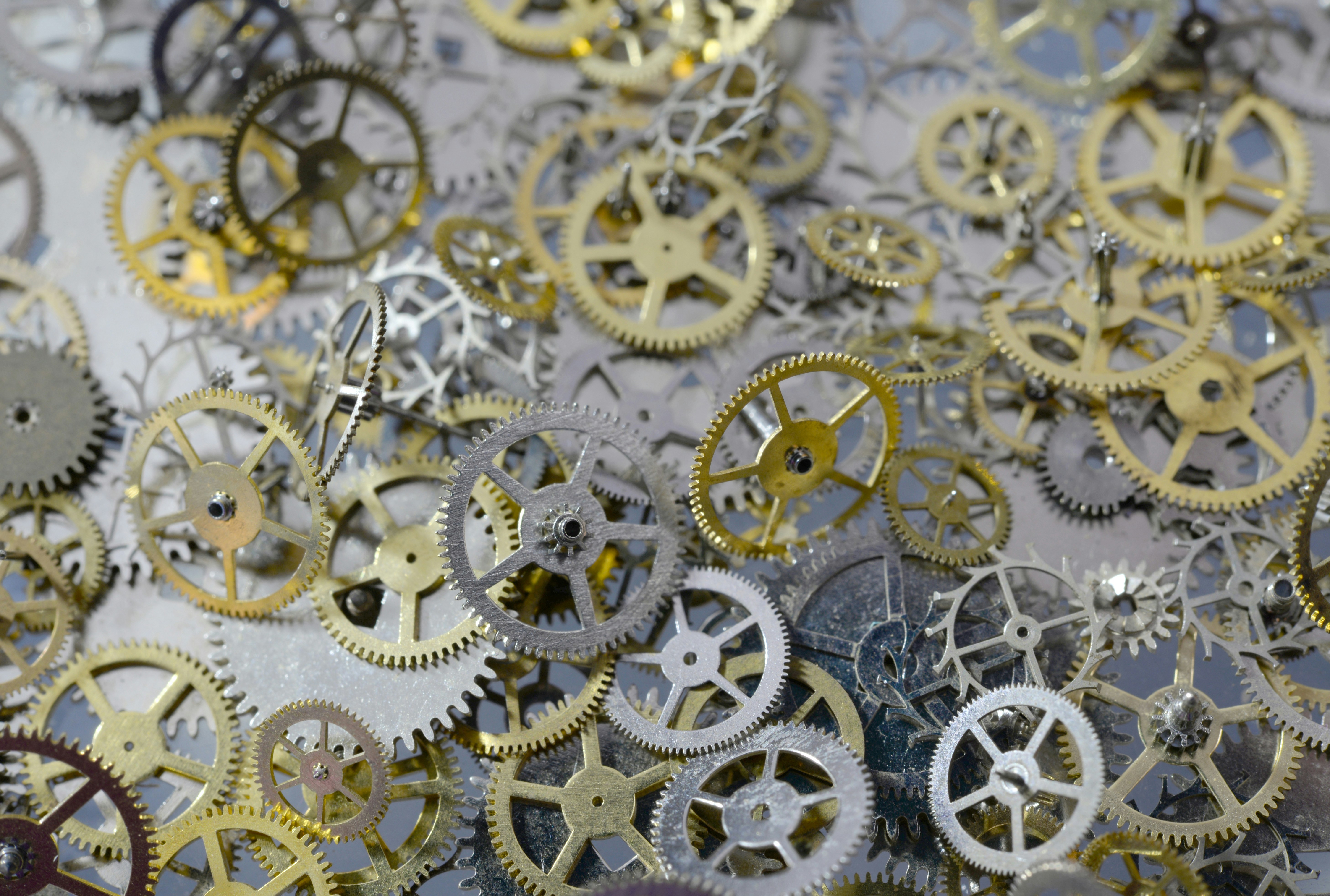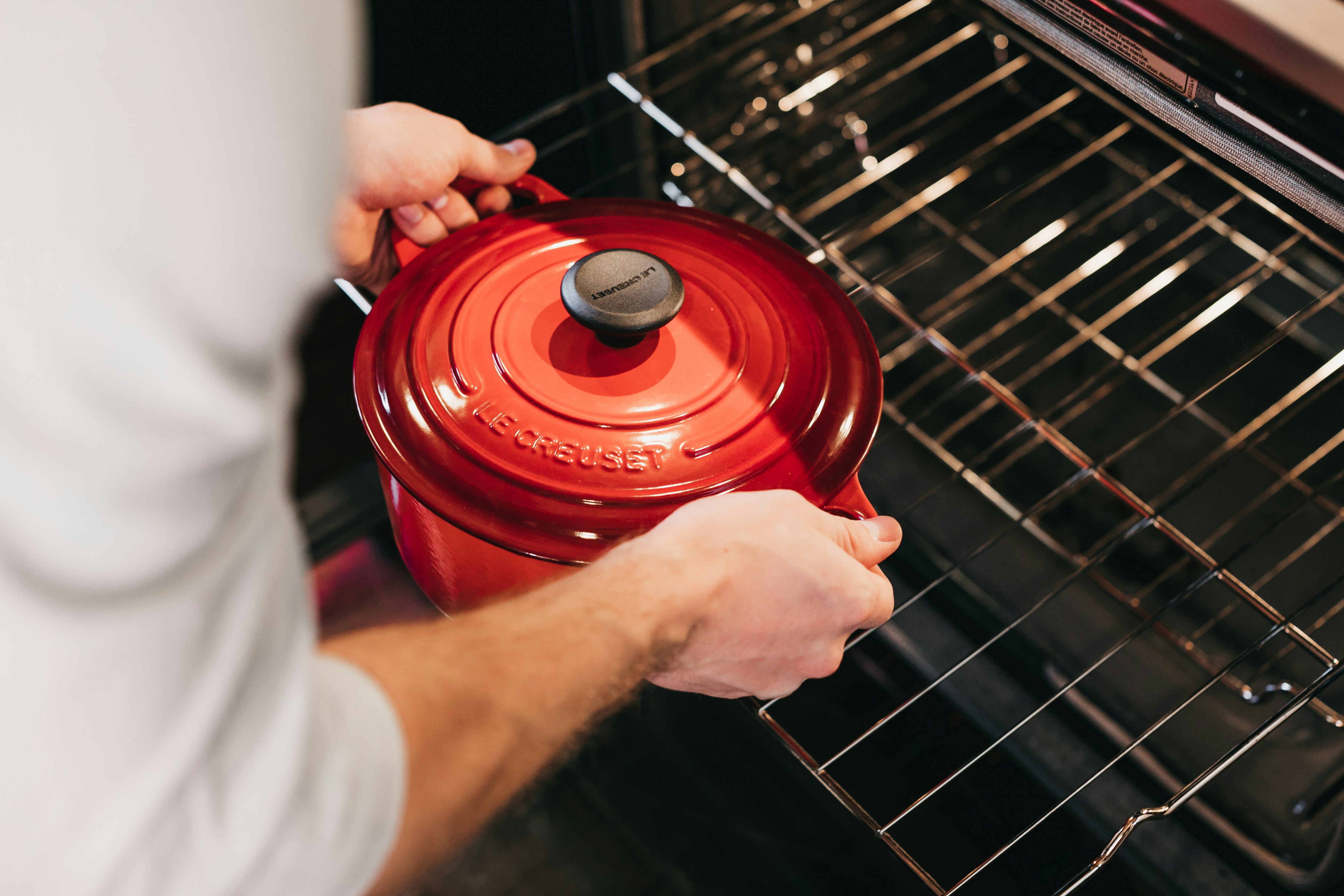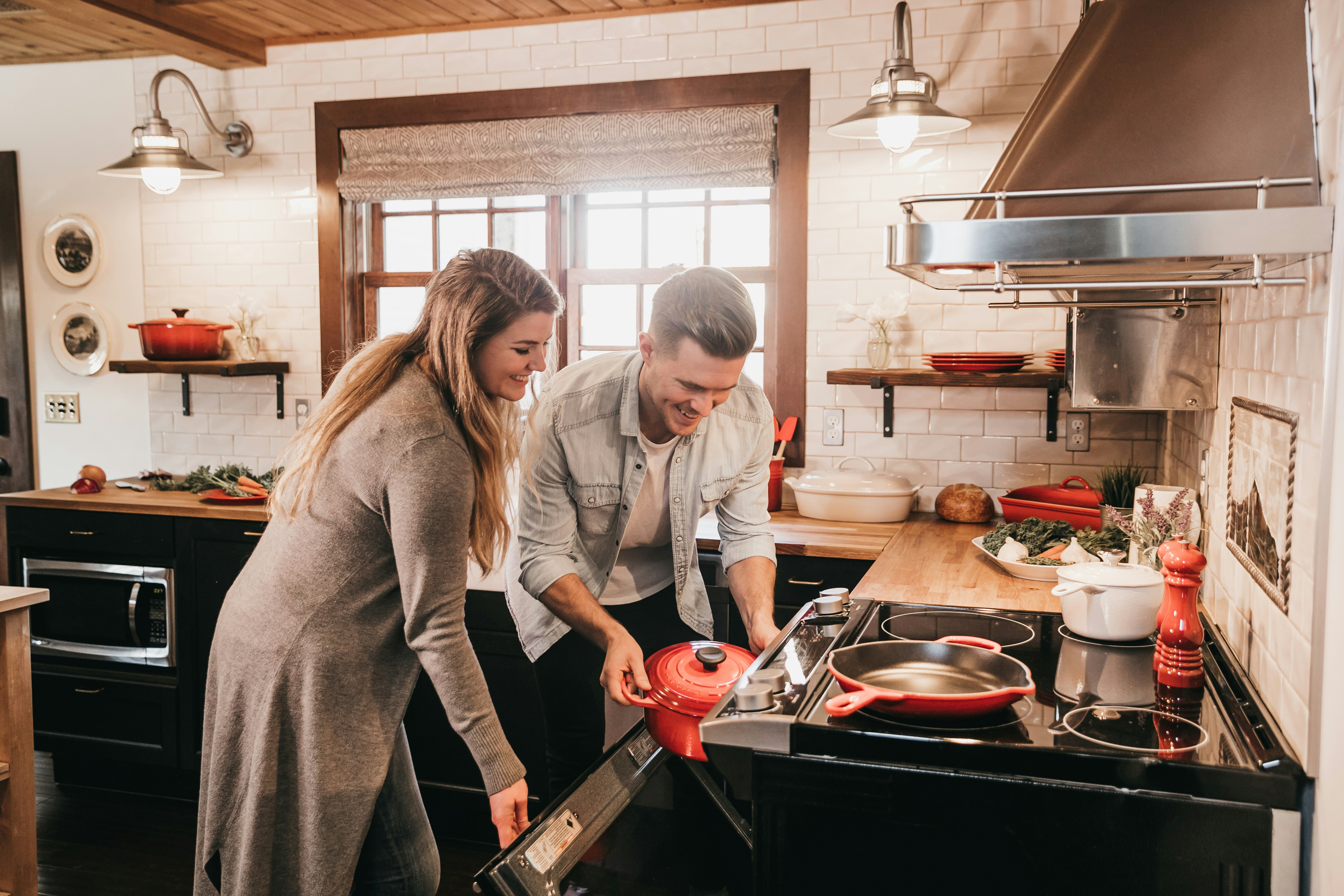You’re in the kitchen preparing a delicious meal, and you suddenly find yourself wondering – can you use those metal lids that came with your cookware in the oven? It’s a common question that many home cooks have, and luckily, the answer is not as complicated as it may seem. In this article, we’ll take a look at whether or not it’s safe to use metal lids in the oven with your cookware and provide some helpful tips to ensure your cooking experience is both enjoyable and worry-free. So let’s dive in and discover the truth behind using metal lids in the oven!
Some suggestions to consider!
Astercook Non Stick RV Pots and Pans Ceramic Kitchen Cookware Set with Detachable/Removable Handle, Oven Safe, Induction Ready, Stackable, Black, 21 pcs
$59.99 (as of February 25, 2026 10:30 GMT +00:00 - More infoProduct prices and availability are accurate as of the date/time indicated and are subject to change. Any price and availability information displayed on [relevant Amazon Site(s), as applicable] at the time of purchase will apply to the purchase of this product.)Sweetcrispy 12 pcs Pots and Pans Set, Nonstick Kitchen Induction Cookware Suit with Detachable Handle, Dishwasher Oven Safe, Black
$29.99 (as of February 25, 2026 10:30 GMT +00:00 - More infoProduct prices and availability are accurate as of the date/time indicated and are subject to change. Any price and availability information displayed on [relevant Amazon Site(s), as applicable] at the time of purchase will apply to the purchase of this product.)HexClad Hybrid Nonstick 6-Piece Fry Pan Set, 8, 10, and 12-Inch Frying Pans with Tempered Glass Lids, Stay-Cool Handles, Dishwasher-Friendly, Induction Ready, Compatible with All Cooktops
$399.99 (as of February 25, 2026 10:30 GMT +00:00 - More infoProduct prices and availability are accurate as of the date/time indicated and are subject to change. Any price and availability information displayed on [relevant Amazon Site(s), as applicable] at the time of purchase will apply to the purchase of this product.)
What are metal lids?
Metal lids are lids made from various types of metal, such as stainless steel or cast iron. They are designed to cover pots, pans, and other cookware while cooking or baking in the oven. Metal lids come in different sizes and shapes to fit a wide range of cookware.
Definition of metal lids
Metal lids are flat or domed covers made from metal materials, typically stainless steel or cast iron. They are used to cover pots, pans, and other cookware during baking or roasting in the oven. Metal lids help to retain heat, moisture, and enhance the flavor of the food being cooked.
Types of metal lids
There are different types of metal lids available that vary in size, shape, and functionality. Some common types include:
-
Flat metal lids: These are flat and sit flush on top of the cookware, providing a tight seal to lock in heat, moisture, and flavors.
-
Domed metal lids: These lids have a rounded shape, allowing extra space for food to rise while baking or roasting. The dome shape helps to circulate the heat and retain moisture.
-
Slotted metal lids: These lids feature small holes or slots to allow some steam to escape while still covering the cookware. They are commonly used when simmering or braising dishes.
-
Specialty metal lids: Some metal lids are designed with additional features, such as a built-in thermometer or adjustable vent control, to provide more control over the cooking process.
Cookware compatibility
When using metal lids in the oven, it is important to consider the compatibility of the cookware. Different materials have different heat resistance levels and may react differently to the heat of the oven.
Understanding cookware materials
Cookware can be made from various materials, including stainless steel, cast iron, aluminum, copper, and non-stick coatings. Each material has its own specific characteristics, such as heat conductivity, durability, and oven-safe temperature ranges.
It is crucial to refer to the manufacturer’s guidelines for your specific cookware to determine its compatibility with metal lids in the oven. Some cookware materials may not be suitable for oven use, while others may have temperature limitations.
Determining oven-safe cookware
To ensure compatibility with metal lids in the oven, check if your cookware is labeled as oven-safe. The manufacturer’s guidelines and specifications will typically indicate the highest safe oven temperature for the cookware.
If your cookware is not labeled as oven-safe or you are unsure about its compatibility, it is best to avoid using metal lids in the oven to prevent damage or accidents.
Benefits of using metal lids in the oven
Using metal lids in the oven offers several benefits that can enhance your cooking experience and results.
Heat retention
Metal lids are excellent at retaining heat, helping to create a more even cooking environment. By trapping the heat inside the cookware, metal lids contribute to faster and more efficient cooking. This is especially useful for slow-cooking or braising dishes that require low and steady heat.
Moisture retention
Metal lids also play a crucial role in keeping moisture locked inside the cookware. As the food cooks, the steam is trapped under the lid, preventing it from evaporating and ensuring the food remains moist and flavorful. This is particularly advantageous for recipes that require a moist cooking environment, such as stews or casseroles.
Flavor enhancement
When using metal lids in the oven, the trapped heat and moisture help to intensify the flavors of the food. The enclosed environment allows the flavors to mingle and develop, resulting in more vibrant and well-rounded dishes. The enhanced flavor profile is especially noticeable in slow-cooked or braised dishes where the ingredients have ample time to infuse and blend together.
Considerations before using metal lids in the oven
While metal lids offer numerous benefits, there are some important considerations to keep in mind before using them in the oven.
Compatibility with specific cookware
Before using metal lids in the oven, ensure they are compatible with your specific cookware. Different materials may react differently to the heat, and some cookware may not be designed for oven use. Refer to the manufacturer’s guidelines to ensure a proper fit and compatibility.
Temperature limitations
Metal lids, like cookware, may have temperature limitations. Check the manufacturer’s recommendations for the maximum oven temperature the metal lid can handle. Exceeding these limits could lead to warping, melting, or other damage to the lid.
Handle heat resistance
Consider the heat resistance of the lid handle. Metal handles can become very hot during oven use and may require oven mitts or pot holders to handle. Make sure the handle is securely attached and can withstand the high temperatures of the oven.
Tips for using metal lids in the oven safely
To ensure safe and effective use of metal lids in the oven, follow these tips:
Check cookware manufacturer’s instructions
Always refer to the manufacturer’s instructions and guidelines for your specific cookware. They will provide valuable information regarding oven compatibility, temperature limits, and any specific care instructions for the metal lid.
Preheating the oven
When using metal lids in the oven, it is generally recommended to preheat the oven with the lid in place. Preheating helps to ensure that the cookware and lid are evenly heated and can improve the cooking results.
Avoid sudden temperature changes
To prevent thermal shock, avoid exposing metal lids to sudden temperature changes. This can cause warping or cracking. If you need to remove the metal lid during cooking, place it on a heat-resistant surface and allow it to cool gradually before returning it to the hot oven.
Alternatives to metal lids
If you don’t have metal lids or prefer not to use them in the oven, there are several alternatives that can provide similar functionality:
Glass lids
Glass lids are a popular alternative to metal lids in the oven. They offer good heat retention and transparency, allowing you to monitor the cooking progress without removing the lid.
Aluminum foil
Aluminum foil can be used as a makeshift lid for cookware in the oven. It helps to retain heat and moisture, but keep in mind that it may not provide as tight of a seal as metal or glass lids.
Silicone lids
Silicone lids are flexible, heat-resistant, and can create an airtight seal on different sizes and shapes of cookware. They are a versatile alternative to metal lids, offering great heat retention and moisture sealing properties.
Common myths about using metal lids in the oven
There are some common misconceptions about using metal lids in the oven that need to be addressed:
Metal lids cause uneven cooking
Contrary to popular belief, when used correctly, metal lids do not cause uneven cooking. They actually help to create a more even cooking environment by trapping heat and maintaining a consistent temperature inside the cookware.
Metal lids are not oven-safe
Metal lids can be oven-safe, depending on the type of metal and the cookware they are used with. It is important to check the manufacturer’s guidelines and specifications to determine if the metal lid is suitable for oven use.
Proper care and maintenance for metal lids
To ensure the longevity and performance of your metal lids, follow these care and maintenance tips:
Cleaning and storing
Clean the metal lids thoroughly after each use to remove any food residue or grease. Use warm, soapy water and a soft sponge or cloth. Avoid using harsh abrasives that can scratch the metal. Once clean, dry the lids completely before storing them to prevent moisture buildup and potential corrosion.
Avoiding harsh chemicals
Avoid using harsh or abrasive cleaning chemicals on metal lids as they can damage the metal’s surface. Stick to mild dish soaps and non-abrasive cleaning agents to maintain the integrity of the metal.
Regular inspection
Regularly inspect your metal lids for any signs of damage, such as dents, scratches, or loose handles. If you notice any issues, it is best to replace the lid to ensure safe and effective use in the oven.

Conclusion
Using metal lids in the oven can greatly enhance your cooking experience by improving heat retention, moisture retention, and flavor enhancement. However, it is essential to consider the compatibility of the metal lids with your cookware, temperature limitations, and handle heat resistance. By following the tips for safe use and exploring alternative options, you can make informed decisions about using metal lids in the oven.
Additional resources
For more information and guidance, consider the following resources:
-
Cookware manufacturer’s guidelines: Consult the manufacturer’s instructions and guidelines that accompany your cookware for specific recommendations regarding oven use and metal lids.
-
Online cooking forums: Engage with online cooking communities to exchange tips, experiences, and recommendations regarding using metal lids in the oven.
-
Food blogs: Explore food blogs that discuss cooking techniques, tips, and recipes to discover insights on using metal lids and alternative options in the oven.

